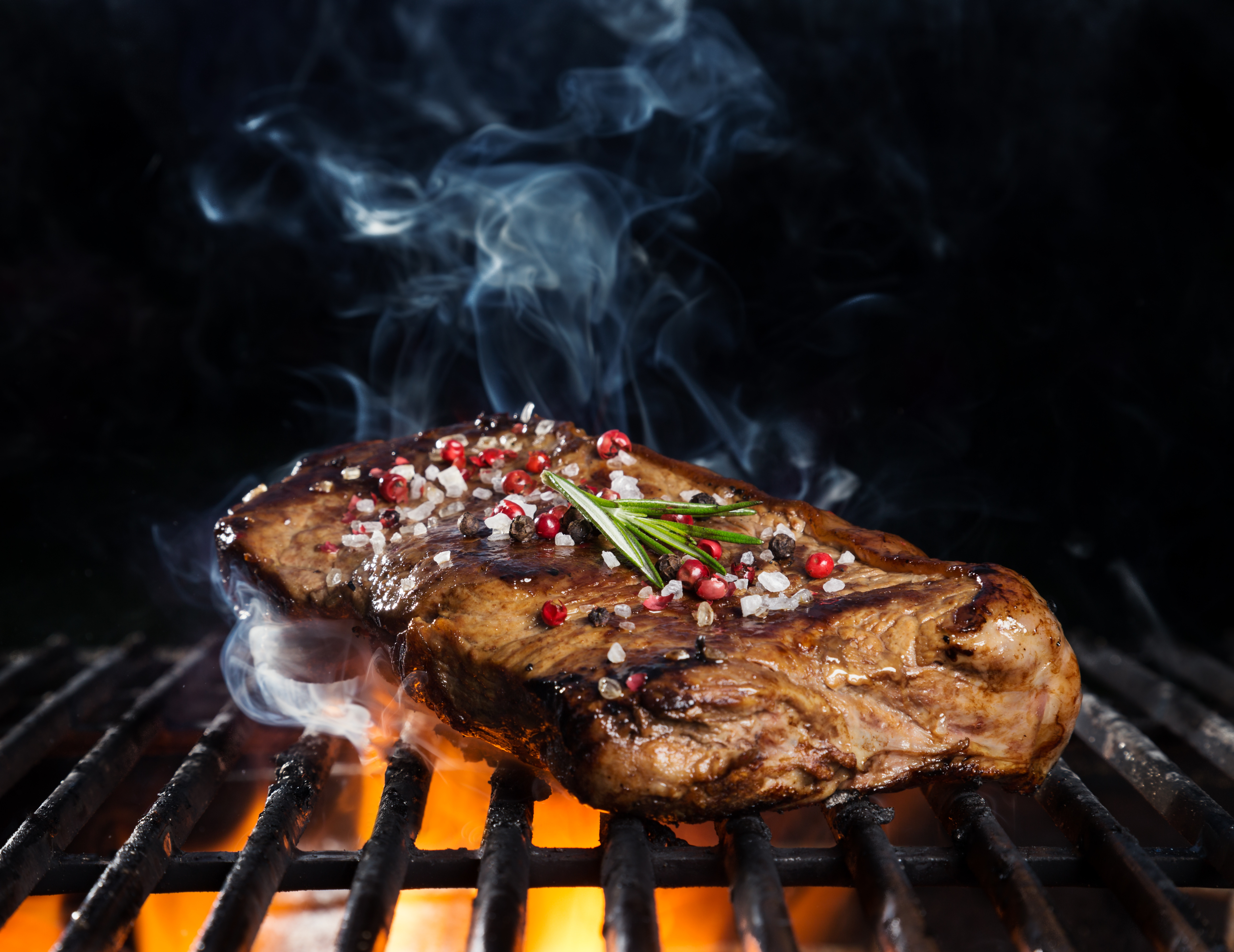Your guide to grilling safely:

Sizzle!
Grilling is a great way to enjoy the warm weather of the summer months, while still having the power to prepare food in your own way. Ditch the indoor restaurants and get to grilling, but remember, as always, safety first!
When foods, primarily meats, come in contact with fire (intense flames, smoke and heat), two known cancer-causing agents, heterocyclic amines (HCA) and polycyclic aromatic hydrocarbons (PAH), can form. The good news is that following a few key grilling practices can significantly cut the formation of HCA and PAH on your barbecued food. Let the following be your grill guide:
Clean your grill. Before your next BBQ give your grill a good cleaning to get rid of accumulated grease, grime and gunk. Not only is this a good practice in terms of housekeeping and hygiene, but caked on sauces, meat and fats become more concentrated with HCA and PAH each time they are scorched. Scraping the grill can do more than just improve the appearance; it can reduce risk for cancer as well.
Choose leaner proteins and trim excess fat. HCA’s and PAH’s form when sizzling fat drips onto the heat source and produces smoke. Keep smoke, and subsequent HCA’s and PAH’s, to a minimum simply by trimming excess fat from your meats, or opt for naturally leaner cuts of proteins, such as tenderloins, chicken breast with the skin removed, and seafood. This will not only keep you safe, but may help to trim your fat as well.
Avoided overcooking, charring, and burning. Cooking food over extreme heat so it burns means more HCA and PAH. Lower the heat on your grill and choose foods that require less grilling time, such as shellfish and kebabs with small pieces of protein. Trim off charred edges before serving.
Don’t hesitate to marinate. Instead of slathering your chicken in a heavy sauce that will drip, burn and create smoke, use marinades that impart zesty flavor and won’t drip. Adding herbs like basil, thyme, rosemary and mint to your marinade can even help cut back on HCA formation since they contain antioxidants that reduce the free radicals that form once food hits the grill.
Keep hands clean. Grilling safely also means practicing food safety. Dirty hands easily contaminate food, so be sure to wash often with soap and water for a minimum of 20 seconds before you cook or eat.